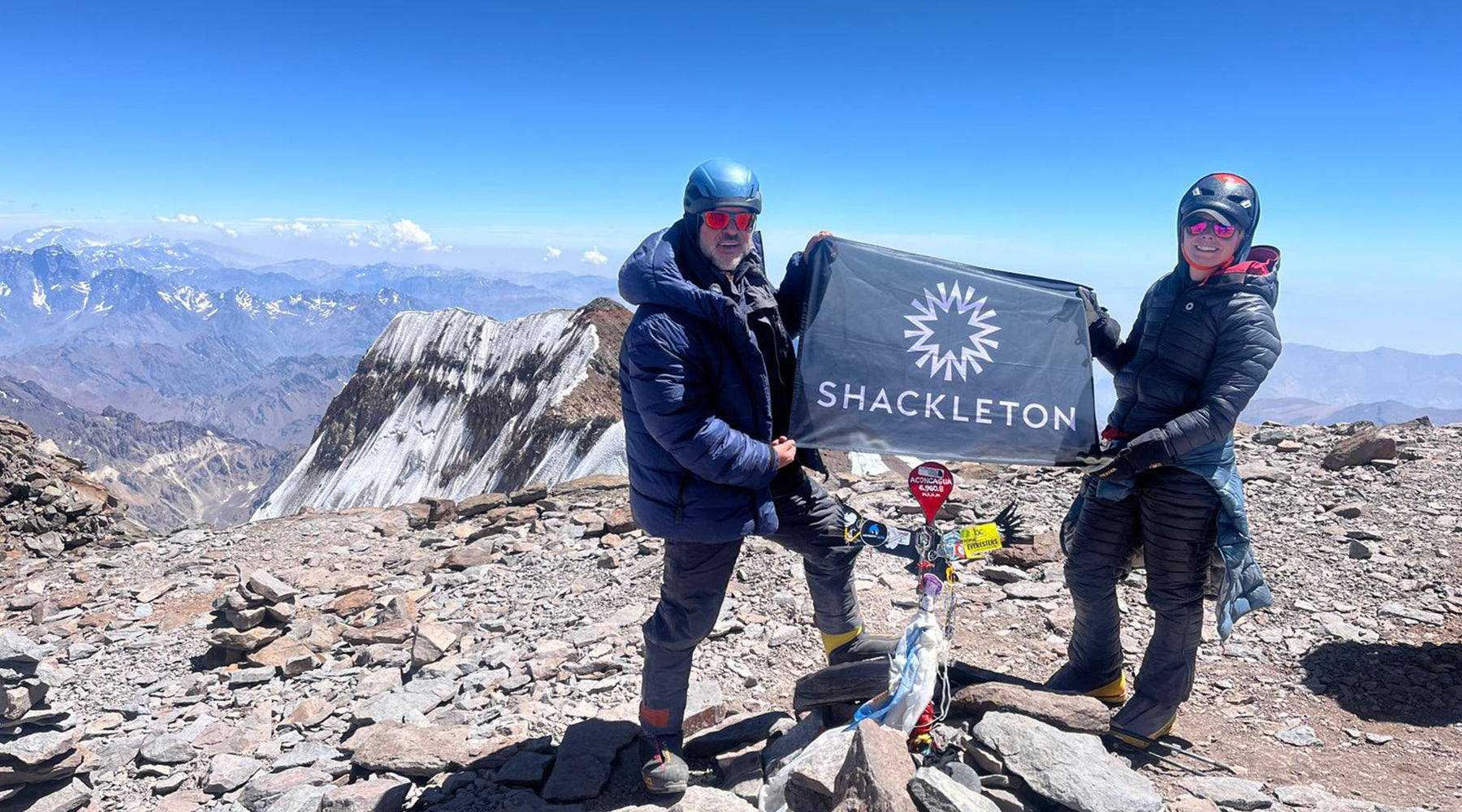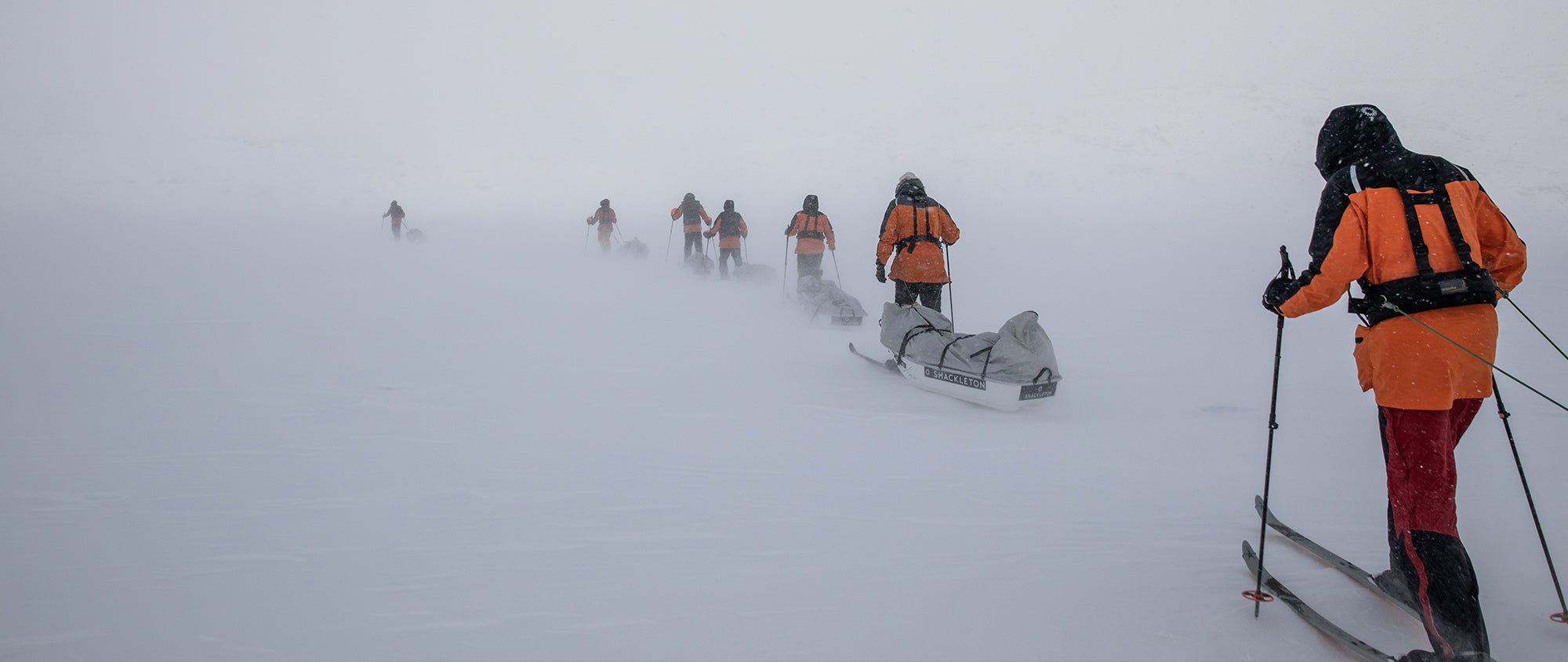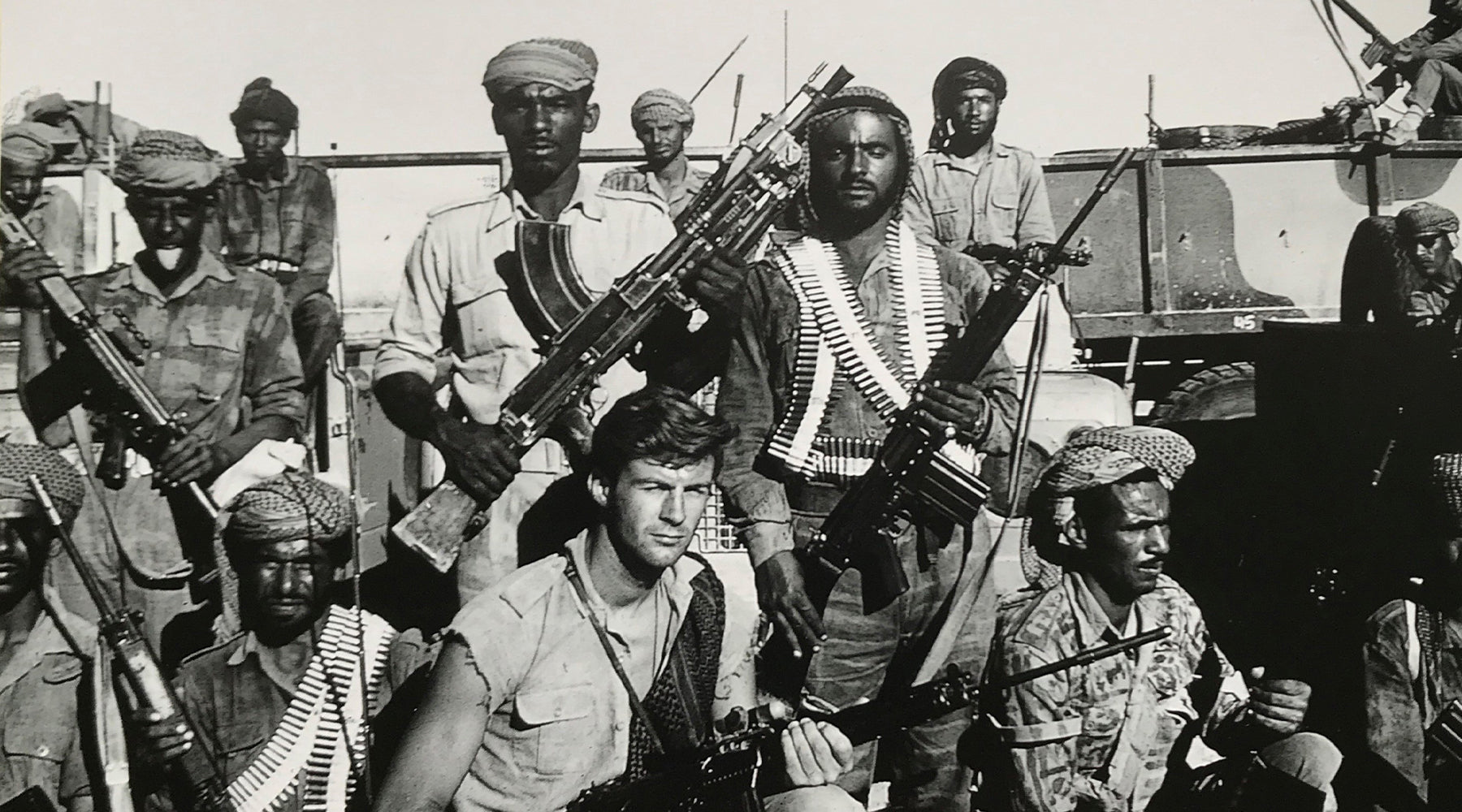
FROM THE PEAK OF THE ANDES TO THE POLAR WILDERNESS
Shackleton Director of Expeditions, Louis Rudd and Expeditions Manager, Wendy Searle summitted Aconcagua - the highest peak in all of the Americas and the highest mountain outside of the Asia - on 8 February 2024. Here they recount the journey, ahead of the Norway Expedition Season in March.
At 6,692m above sea level, Aconcagua is not to be underestimated. With only a 30% success rate at reaching the summit, it is a war of attrition against the altitude, the conditions, and the mental and physical fatigue.
Most people spend weeks on the mountain, creeping their way from the trailhead to the first camp - Confluenza - and then on to the main base camp. Known as Plaza de Mula (place of the mules), this is as high as the teams of mules go, carrying supplies for the summit teams. At 4,300m, it’s a place to rest and acclimatise before heading for the high camps. The hike to Plaza de Mula involves crossing what’s known as ‘the beach’ - miles of windswept, barren landscape which goes on forever, only broken up by the packs of mules kicking up dust back and forth between the camps.

Usually, climbers do ‘rotations’ - going to higher camps before heading down again to rest. Our team went to camp 1 to drop supplies - food and other team kit, plus crampons for summit day - before returning to base camp.
After that, the schedule was: return to camp 1, sleep, then camp 2 and a rest day, then camp 3. After a night at camp 3, which at 6,000m in altitude is like sleeping at the top of Kilimanjaro, it’s summit day.
No one sleeps well the night before. You rest for a few hours between anxiously awaiting time to go, and crazy, altitude-inspired dreams.
We got up at 4am, tried to eat something, and got going. Before the sun comes up it’s bitterly cold, and we put on thermal base layers, hiking trousers and down outer pants, with a similar set up on top (not forgetting a Shackleton down jacket!) We’re in our 6,000m boots, and off we went.
You’re moving incredibly slowly at that altitude - it almost looks like deliberate slow motion when you look at other teams. You’re keeping your head down, looking at the boots of the person in front of you. Trying not to lose any distance between you and the person in front. Trying not to think about how many steps remain ahead.

At last the sun comes up and morale improves. There’s still a long way to go. We stop every hour to rest. We can see tiny dots of people way above us.
About two-thirds of the way to the summit, we stop at the cave, dump as much kit as we can, and rest before the final summit push.
The closer the summit becomes, the slower we seem to be going - crawling along trying to manage pace and breathing.
At last, after a 9-hour struggle, we approach the lip of the summit. It’s a large, flat area, and the guide steps aside so each of us can enjoy the moment of standing at the top of the second highest of the seven summits on earth.
There’s no feeling like it - the euphoria, the relief, the exhaustion.
We were incredibly lucky with the weather - it was sunny with little or no wind. Almost unheard of on Aconcagua. We took ice axes and crampons but needed neither.

We were truly challenged on summit day, and learned so much about high-altitude mountaineering.
As guides, we’re always looking to push ourselves, to remind ourselves what it’s like to be out of your comfort zone. It’s a good place to be - you have to have humility in the mountains, you are not in charge. But as with polar journeys, it’s a mental game as much as a physical one. And we’re always learning about our bodies and minds in tough situations.
We're looking forward to welcoming new and returning clients for our Norway Expedition Season, in Finse which starts in just a few weeks time. You will - as we have in Argentina - find there are hard days. But you will also find new team mates and friends, and learn new skills.
If you're interested in joining us in Norway book a call with our Head of Development, Max Thorpe today.


